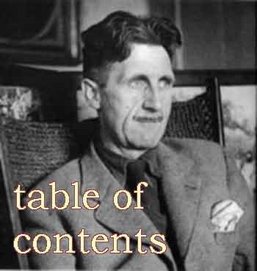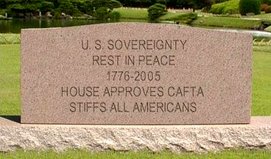A Clean Break: A New Strategy for Securing the Realm
Following is a report prepared by The Institute for Advanced Strategic and Political Studies’ "Study Group on a New Israeli Strategy Toward 2000." The main substantive ideas in this paper emerge from a discussion in which prominent opinion makers, including
Richard Perle, James Colbert, Charles Fairbanks, Jr., Douglas Feith, Robert Loewenberg, David Wurmser, and Meyrav Wurmser participated. The report, entitled "A Clean Break: A New Strategy for Securing the Realm," is the framework for a series of follow-up reports on strategy.
Israel has a large problem. Labor Zionism, which for 70 years has dominated the Zionist movement, has generated a stalled and shackled economy. Efforts to salvage Israel’s socialist institutions—which include pursuing supranational over national sovereignty and pursuing a peace process that embraces the slogan, "New Middle East"—undermine the legitimacy of the nation and lead Israel into strategic paralysis and the previous government’s "peace process." That peace process obscured the evidence of eroding national critical mass— including a palpable sense of national exhaustion—and forfeited strategic initiative. The loss of national critical mass was illustrated best by Israel’s efforts to draw in the United States to sell unpopular policies domestically, to agree to negotiate sovereignty over its capital, and to respond with resignation to a spate of terror so intense and tragic that it deterred Israelis from engaging in normal daily functions, such as commuting to work in buses.
Benjamin Netanyahu’s government comes in with a new set of ideas. While there are those who will counsel continuity, Israel has the opportunity to make a clean break; it can forge a peace process and strategy based on an entirely new intellectual foundation, one that restores strategic initiative and provides the nation the room to engage every possible energy on rebuilding Zionism, the starting point of which must be economic reform. To secure the nation’s streets and borders in the immediate future, Israel can:
Work closely with Turkey and Jordan to contain, destabilize, and roll-back some of its most dangerous threats. This implies clean break from the slogan, "comprehensive peace" to a traditional concept of strategy based on balance of power.
Change the nature of its relations with the Palestinians, including upholding the right of hot pursuit for self defense into all Palestinian areas and nurturing alternatives to Arafat’s exclusive grip on Palestinian society.
Forge a new basis for relations with the United States—stressing self-reliance, maturity, strategic cooperation on areas of mutual concern, and furthering values inherent to the West. This can only be done if Israel takes serious steps to terminate aid, which prevents economic reform.
This report is written with key passages of a possible speech marked TEXT, that highlight the clean break which the new government has an opportunity to make. The body of the report is the commentary explaining the purpose and laying out the strategic context of the passages.
A New Approach to Peace
Early adoption of a bold, new perspective on peace and security is imperative for the new prime minister. While the previous government, and many abroad, may emphasize "land for peace"— which placed Israel in the position of cultural, economic, political, diplomatic, and military retreat — the new government can promote Western values and traditions. Such an approach, which will be well received in the United States, includes "peace for peace," "peace through strength" and self reliance: the balance of power.
A new strategy to seize the initiative can be introduced:
TEXT:
We have for four years pursued peace based on a New Middle East. We in Israel cannot play innocents abroad in a world that is not innocent. Peace depends on the character and behavior of our foes. We live in a dangerous neighborhood, with fragile states and bitter rivalries. Displaying moral ambivalence between the effort to build a Jewish state and the desire to annihilate it by trading "land for peace" will not secure "peace now." Our claim to the land —to which we have clung for hope for 2000 years--is legitimate and noble. It is not within our own power, no matter how much we concede, to make peace unilaterally. Only the unconditional acceptance by Arabs of our rights, especially in their territorial dimension, "peace for peace," is a solid basis for the future.
Israel’s quest for peace emerges from, and does not replace, the pursuit of its ideals. The Jewish people’s hunger for human rights — burned into their identity by a 2000-year old dream to live free in their own land — informs the concept of peace and reflects continuity of values with Western and Jewish tradition. Israel can now embrace negotiations, but as means, not ends, to pursue those ideals and demonstrate national steadfastness. It can challenge police states; enforce compliance of agreements; and insist on minimal standards of accountability.
Securing the Northern Border
Syria challenges Israel on Lebanese soil. An effective approach, and one with which American can sympathize, would be if Israel seized the strategic initiative along its northern borders by engaging Hizballah, Syria, and Iran, as the principal agents of aggression in Lebanon, including by:
striking Syria’s drug-money and counterfeiting infrastructure in Lebanon, all of which focuses on Razi Qanan.
paralleling Syria’s behavior by establishing the precedent that Syrian territory is not immune to attacks emanating from Lebanon by Israeli proxy forces.
striking Syrian military targets in Lebanon, and should that prove insufficient, striking at select targets in Syria proper.
Israel also can take this opportunity to remind the world of the nature of the Syrian regime. Syria repeatedly breaks its word. It violated numerous agreements with the Turks, and has betrayed the United States by continuing to occupy Lebanon in violation of the Taef agreement in 1989. Instead, Syria staged a sham election, installed a quisling regime, and forced Lebanon to sign a "Brotherhood Agreement" in 1991, that terminated Lebanese sovereignty. And Syria has begun colonizing Lebanon with hundreds of thousands of Syrians, while killing tens of thousands of its own citizens at a time, as it did in only three days in 1983 in Hama.
Under Syrian tutelage, the Lebanese drug trade, for which local Syrian military officers receive protection payments, flourishes. Syria’s regime supports the terrorist groups operationally and financially in Lebanon and on its soil. Indeed, the Syrian-controlled Bekaa Valley in Lebanon has become for terror what the Silicon Valley has become for computers. The Bekaa Valley has become one of the main distribution sources, if not production points, of the "supernote" — counterfeit US currency so well done that it is impossible to detect.
Text:
Negotiations with repressive regimes like Syria’s require cautious realism. One cannot sensibly assume the other side’s good faith. It is dangerous for Israel to deal naively with a regime murderous of its own people, openly aggressive toward its neighbors, criminally involved with international drug traffickers and counterfeiters, and supportive of the most deadly terrorist organizations.
Given the nature of the regime in Damascus, it is both natural and moral that Israel abandon the slogan "comprehensive peace" and move to contain Syria, drawing attention to its weapons of mass destruction program, and rejecting "land for peace" deals on the Golan Heights.
Moving to a Traditional Balance of Power Strategy
TEXT:
We must distinguish soberly and clearly friend from foe. We must make sure that our friends across the Middle East never doubt the solidity or value of our friendship.
Israel can shape its strategic environment, in cooperation with Turkey and Jordan, by weakening, containing, and even rolling back Syria. This effort can focus on removing Saddam Hussein from power in Iraq — an important Israeli strategic objective in its own right — as a means of foiling Syria’s regional ambitions. Jordan has challenged Syria's regional ambitions recently by suggesting the restoration of the Hashemites in Iraq. This has triggered a Jordanian-Syrian rivalry to which Asad has responded by stepping up efforts to destabilize the Hashemite Kingdom, including using infiltrations. Syria recently signaled that it and Iran might prefer a weak, but barely surviving Saddam, if only to undermine and humiliate Jordan in its efforts to remove Saddam.
But Syria enters this conflict with potential weaknesses: Damascus is too preoccupied with dealing with the threatened new regional equation to permit distractions of the Lebanese flank. And Damascus fears that the 'natural axis' with Israel on one side, central Iraq and Turkey on the other, and Jordan, in the center would squeeze and detach Syria from the Saudi Peninsula. For Syria, this could be the prelude to a redrawing of the map of the Middle East which would threaten Syria's territorial integrity.
Since Iraq's future could affect the strategic balance in the Middle East profoundly, it would be understandable that Israel has an interest in supporting the Hashemites in their efforts to redefine Iraq, including such measures as: visiting Jordan as the first official state visit, even before a visit to the United States, of the new Netanyahu government; supporting King Hussein by providing him with some tangible security measures to protect his regime against Syrian subversion; encouraging — through influence in the U.S. business community — investment in Jordan to structurally shift Jordan’s economy away from dependence on Iraq; and diverting Syria’s attention by using Lebanese opposition elements to destabilize Syrian control of Lebanon.
Most important, it is understandable that Israel has an interest supporting diplomatically, militarily and operationally Turkey’s and Jordan’s actions against Syria, such as securing tribal alliances with Arab tribes that cross into Syrian territory and are hostile to the Syrian ruling elite.
King Hussein may have ideas for Israel in bringing its Lebanon problem under control. The predominantly Shia population of southern Lebanon has been tied for centuries to the Shia leadership in Najf, Iraq rather than Iran. Were the Hashemites to control Iraq, they could use their influence over Najf to help Israel wean the south Lebanese Shia away from Hizballah, Iran, and Syria. Shia retain strong ties to the Hashemites: the Shia venerate foremost the Prophet’s family, the direct descendants of which — and in whose veins the blood of the Prophet flows — is King Hussein.
Changing the Nature of Relations with the Palestinians
Israel has a chance to forge a new relationship between itself and the Palestinians. First and foremost, Israel’s efforts to secure its streets may require hot pursuit into Palestinian-controlled areas, a justifiable practice with which Americans can sympathize.
A key element of peace is compliance with agreements already signed. Therefore, Israel has the right to insist on compliance, including closing Orient House and disbanding Jibril Rujoub’s operatives in Jerusalem. Moreover, Israel and the United States can establish a Joint Compliance Monitoring Committee to study periodically whether the PLO meets minimum standards of compliance, authority and responsibility, human rights, and judicial and fiduciary accountability.
TEXT:
We believe that the Palestinian Authority must be held to the same minimal standards of accountability as other recipients of U.S. foreign aid. A firm peace cannot tolerate repression and injustice. A regime that cannot fulfill the most rudimentary obligations to its own people cannot be counted upon to fulfill its obligations to its neighbors.
Israel has no obligations under the Oslo agreements if the PLO does not fulfill its obligations. If the PLO cannot comply with these minimal standards, then it can be neither a hope for the future nor a proper interlocutor for present.
To prepare for this, Israel may want to cultivate alternatives to Arafat’s base of power. Jordan has ideas on this.
To emphasize the point that Israel regards the actions of the PLO problematic, but not the Arab people, Israel might want to consider making a special effort to reward friends and advance human rights among Arabs. Many Arabs are willing to work with Israel; identifying and helping them are important. Israel may also find that many of her neighbors, such as Jordan, have problems with Arafat and may want to cooperate. Israel may also want to better integrate its own Arabs.
Forging A New U.S.-Israeli Relationship
In recent years, Israel invited active U.S. intervention in Israel’s domestic and foreign policy for two reasons: to overcome domestic opposition to "land for peace" concessions the Israeli public could not digest, and to lure Arabs — through money, forgiveness of past sins, and access to U.S. weapons — to negotiate. This strategy, which required funneling American money to repressive and aggressive regimes, was risky, expensive, and very costly for both the U.S. and Israel, and placed the United States in roles is should neither have nor want.
Israel can make a clean break from the past and establish a new vision for the U.S.-Israeli partnership based on self-reliance, maturity and mutuality — not one focused narrowly on territorial disputes. Israel’s new strategy — based on a shared philosophy of peace through strength — reflects continuity with Western values by stressing that Israel is self-reliant, does not need U.S. troops in any capacity to defend it, including on the Golan Heights, and can manage its own affairs. Such self-reliance will grant Israel greater freedom of action and remove a significant lever of pressure used against it in the past.
To reinforce this point, the Prime Minister can use his forthcoming visit to announce that Israel is now mature enough to cut itself free immediately from at least U.S. economic aid and loan guarantees at least, which prevent economic reform. [Military aid is separated for the moment until adequate arrangements can be made to ensure that Israel will not encounter supply problems in the means to defend itself]. As outlined in another Institute report, Israel can become self-reliant only by, in a bold stroke rather than in increments, liberalizing its economy, cutting taxes, relegislating a free-processing zone, and selling-off public lands and enterprises —
moves which will electrify and find support from a broad bipartisan spectrum of key pro-Israeli Congressional leaders, including Speaker of the House, Newt Gingrich.
Israel can under these conditions better cooperate with the U.S. to counter real threats to the region and the West’s security. Mr. Netanyahu can highlight his desire to cooperate more closely with the United States on anti-missile defense in order to remove the threat of blackmail which even a weak and distant army can pose to either state. Not only would such cooperation on missile defense counter a tangible physical threat to Israel’s survival, but it would broaden Israel’s base of support among many in the United States Congress who may know little about Israel, but care very much about missile defense. Such broad support could be helpful in the effort to move the U.S. embassy in Israel to Jerusalem.
To anticipate U.S. reactions and plan ways to manage and constrain those reactions, Prime Minister Netanyahu can formulate the policies and stress themes he favors in language familiar to the Americans by tapping into themes of American administrations during the Cold War which apply well to Israel. If Israel wants to test certain propositions that require a benign American reaction, then the best time to do so is before November, 1996.
Conclusions: Transcending the Arab-Israeli Conflict
TEXT: Israel will not only contain its foes; it will transcend them.
Notable Arab intellectuals have written extensively on their perception of Israel’s floundering and loss of national identity. This perception has invited attack, blocked Israel from achieving true peace, and offered hope for those who would destroy Israel. The previous strategy, therefore, was leading the Middle East toward another Arab-Israeli war. Israel’s new agenda can signal a clean break by abandoning a policy which assumed exhaustion and allowed strategic retreat by reestablishing the principle of preemption, rather than retaliation alone and by ceasing to absorb blows to the nation without response.
Israel’s new strategic agenda can shape the regional environment in ways that grant Israel the room to refocus its energies back to where they are most needed: to rejuvenate its national idea, which can only come through replacing Israel’s socialist foundations with a more sound footing; and to overcome its "exhaustion," which threatens the survival of the nation.
Ultimately, Israel can do more than simply manage the Arab-Israeli conflict though war. No amount of weapons or victories will grant Israel the peace its seeks. When Israel is on a sound economic footing, and is free, powerful, and healthy internally, it will no longer simply manage the Arab-Israeli conflict; it will transcend it. As a senior Iraqi opposition leader said recently: "Israel must rejuvenate and revitalize its moral and intellectual leadership. It is an important — if not the most important--element in the history of the Middle East." Israel — proud, wealthy, solid, and strong — would be the basis of a truly new and peaceful Middle East.
Participants in the Study Group on "A New Israeli Strategy Toward 2000:"Richard Perle, American Enterprise Institute, Study Group Leader
James Colbert, Jewish Institute for National Security AffairsCharles Fairbanks, Jr., Johns Hopkins University/SAISDouglas Feith, Feith and Zell AssociatesRobert Loewenberg, President, Institute for Advanced Strategic and Political StudiesJonathan Torop, The Washington Institute for Near East PolicyDavid Wurmser, Institute for Advanced Strategic and Political StudiesMeyrav Wurmser, Johns Hopkins University

























